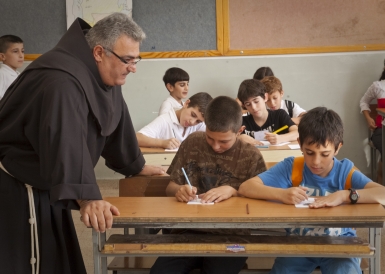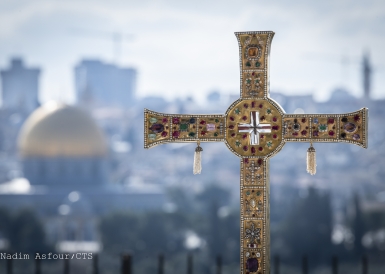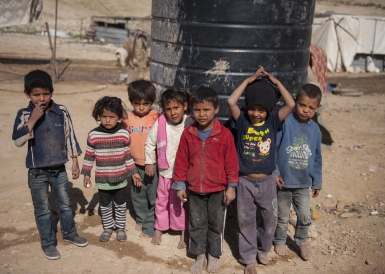Our annual Holy Land Collection, usually taken on Good Friday, unites the generosity of our Canadian churches with the Catholic communities across the world.
United in solidarity with the Holy Land, they support the Christian peoples and the holy sites in the land where Christ lived and where the earliest Christian communities arose.
Origin
Saint Paul frequently mentions the generosity of the different Christian communities who help other churches in their need. The Good Friday Collection is in keeping with that spirit. Since the 12th century, Christians from the west have been present in and have helped care for the churches of the Holy Land. In 1342, Pope Clement VI entrusted the care of these churches to the Franciscans. A century later, in 1421, Pope Martin V permitted the establishment of Franciscan Commissariats throughout the then-known western world to appeal for the needs of Christians and the holy places. Ever since Pope Leo XIII’s declaration of “Collecta pro Locis Sanctis” on December 26, 1877, up to our present day, the Holy See has consistently supported that need.
Distribution of Receipts
With the support of every Roman Catholic Bishop and the Bishops of various Byzantine Eparchies throughout Canada, the Holy Land or Good Friday collection is taken up in every parish church. The monies collected are forwarded either to the Commissariat of the Holy Land in Canada or to the Canadian Apostolic Nunciature. The Commissariat, under the direction of its Board of Trustees which reports to the Government of Canada Revenue Agency, then forwards the money to the Treasurer of the Custody of the Holy Land in Jerusalem. Ultimately the Congregation for the Oriental Churches, currently under the presidency of Leonard Cardinal Sandri, assures that the monies are distributed to the various Churches throughout the Middle East.
Reinforcing the Christian Presence in the Holy Land
The Holy Land Collection brings an indispensable support to the Christian minority throughout the Middle East, not only in Israel and Palestine but in Jordan, Lebanon, Syria, Iraq and Iran and other regions. To put this in perspective, consider that, presently in the State of Israel and Palestine, Christians make up about 1.5 percent of the total population. This means that there are only about 130,000 thousand Arab Christians from thirteen different Christian denominations living among 10,000,000 people. Christians’ lives become very difficult and many families are forced to leave in order to seek a livelihood, or to avoid various forms of discrimination and persecution. When the Christian presence disappears, the loss of a Christian culture and the holy sites, precious and vital for Christians throughout the world, follow in the wake. With monies from the collection for the Holy Land, the Franciscan Custody undertakes numerous initiatives for the people and assures the continued possession and care of Christian shrines.


